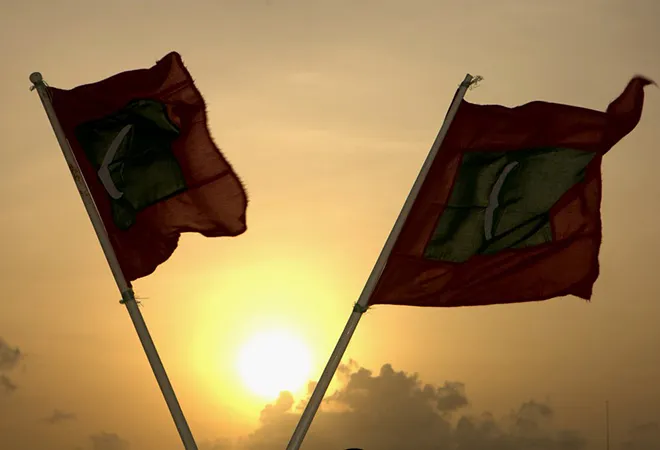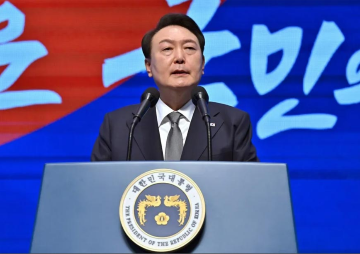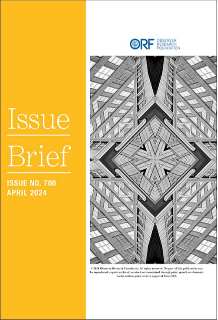Even as the media is full of speculation if ‘superstar’ Rajinikanth would finally take a political call after keeping his fans and the voters of Tamil Nadu guessing for years, the question is if his announcement to declare his decision on New Year's eve would be any different from what is being branded as his indecision par excellence.
Rajinikanth is a brand in Tamil films. He re-wrote the history of Tamil cinema from thespian Sivaji Ganesan’s long-winding, tooth-breaking monologue-centric melodrama by upping the stylish quotient. Now, after three long decades of competent screen performances and commanding a great fan following, the question is if Rajinikanth as a politician would be as successful as MGR or a complete failure as Sivaji Ganesan.
If not anything else else, even as he said he would take a call on his political plunge on 31 December, the actor still appears to be weighing his options. “More than the people, it is the media that is eager,” he said on Tuesdaywhile recommencing the suspended day-long photo opp with his fans. Most of those queuing up for pictures in a nation of young and youthful voters may belong either to the visibly greyed generation or those who could still at best claim to be in the middle-age group and that could be the reason the actor announced that he would announce his decision on politics on New Year's eve. Not many youngsters, who should be forming the core of foot-soldiers for any election campaign, are particularly centred on a film-star of his kind.
If Rajinikanth's team of political strategists, if any, had concluded that after the recently-concluded R.K. Nagar by-election, the Tamil Nadu voter is looking for change, a move away from the electoral strangle-hold of the ruling AIADMK and the parent DMK, they may have a point. But going beyond what the sweeping success of ‘Independent’ T.T.V. Dhinakaran may indicate, the issue remains that he was not as much an ‘Independent’ candidate. The results showed that Dhinakaran, at best, represented the majority faction in the AIADMK at the cadre-level and voter-level, whether or not the EC and the party leadership accepted him as such. He was also able to swing a substantial number of ‘non-committal voters.’
Non-committed voters
Rajinikanth’s strategists would hope that he could woo those ‘non-committed voters’ to his side, and there is a proven and continual 10 per cent from among the larger pool of them going to the ‘new bloke on the block.’ The actor, however, is not the new bloke, as he himself has thrown up his name a number of times without following it up with a firm commitment and firmer action on the ground. If Dhinakaran’s tally, for instance, comprised ‘non-committed voters’ who could still consider Rajnikanth, and a substantial section of ‘minorities’ votes — after the communities concerned began suspecting the DMK on its ‘secularism’ credentials with Prime Minister Narendra Modi calling on the ailing party chief M. Karunanidhi, without notice only weeks before the bypoll — Rajinikanth cannot forget the fact that he has come to be identified with the BJP. This association began almost from the mid to late-nineties, after his promising start in the political arena in the company of the late G.K. Moopanar and his now-forgotten Tamil Maanila Congress (TMC) in in 1996 assembly elections.
In every which way, the one-time bus-conductor that he was in Bengaluru before entering Tamil filmdom, Rajinikanth may have missed the politico-electoral bus, if at all, then. That apart, the Tamil Nadu voters, and more definitely the teeming number of his fans, definitely helped the DMK-TMC combine vote out Jayalalithaa and the AIADMK at the time, but then, the superstar was only reflecting the crystallised public mood after entering the scene late. In the immediately next 1998 parliamentary polls, not only the voter but even a substantial number of fans, rejected Rajinikanth’s certificate of near-innocence for the ruling DMK over the ‘Coimbatore serial blasts’. Fans even closed down associations, pulled down his cut-outs in many parts of the state, reminiscent of the Emergency days, when Sivaji Ganesan, a Congress(O) second-liner, declared after the death of mentor K. Kamaraj, that he would decide on joining (or, not joining) the ruling faction under prime minister Indira Gandhi, after his return from the annual ‘Sabarimala pilgrimage’. Otherwise block-buster of a movie, ‘Paattum Bharathamum’ (‘Song & Dance’), pairing Jayalalithaa, bombed without trace.
After the instability produced by their indecisiveness of the first general elections in 1952, the Tamil Nadu voter has always voted for a strong leader and a stable government. Even when the DMK got only 96 of the 234 seats in the assembly polls of 2006, the voter knew that Karunanidhi would pull through full five years of ‘minority government’ with ‘outside’ support from the Congress in the UPA government at the Centre.
Dhinakaran, suave and relatively young, compared to every other political leader — existing and emerging in the Tamil Nadu’s electoral firmament — and possibly appealing more to GenX voters than the rest, is seen as a strong and stable leader, undaunted like his jailed aunt, V.K. Sasikala Natarajan, and not being frightened by the ruling BJP or the various Central agencies at its command. Rajinikanth just does not belong there in anyone’s imagination, by any stretch of imagination. Like Moopanar, at best, he is seen as being a good-natured man who will do better outside politics than inside.
Unintelligible, both
It is not only Rajinikanth who has evinced a new interest in entering direct politics, his contemporary-cum-competitor (if that could be the phrase), Kamal Haasan, suddenly rose from his political silence of all these decades, to declare that he would be entering direct politics and on his own, as if it were round the corner. Hours extended to days, days to weeks, and weeks to months, but Haasan is no more the Tamil media’s attention, as R.K. Nagar and a host of other eye-catching news interests caught them even more — and now Rajinikanth, too, one more time and possibly, one last time.
In their own ways, and in their own diction, confused ideas and unconvincing packaging, both superstars are unintelligible to the average voter across the state. For those that indicate that they would be either at the top, as chief minister, or not at all, neither of them even have a ‘safe constituency’ to call their own, not to mention half a dozen frontline leaders who are otherwise qualified to carry their purported message of clean politics to the people without anyone pointing an accusatory finger.
This apart, unlike MGR and even Sivaji Ganesan, who entered politics early on, Rajni, Haasan and even more their own next generation of actors are relatively unexposed to hardships of daily life for long years now, leave alone what political rallies and election campaigns entail. The story of the failed DMDK founder Vijaykanth, another star-politician who started his electoral journey a decade back with the 10 per cent ‘non-committed’ vote-base, is worth studying, not only for the political strategists of the two superstars, not only in terms of voter behaviour, but also with regard to the personality issues and physical toughness that it all demands.
Last but not the least, by talking politics, both on-screen and off-screen before every big-budget film release and not following it up in the ways hinted, Rajnikanth has become a butt of social media jokes and drawing room cynicism and criticism, for at least a decade now. With two of his big-budget movies, 2.0 and Kala due for release, his producers and financiers would want a better off-screen performance from the superstar than in the past, as his mid-production declarations on politics did not set even Cooum, leave aside Cauvery and the Vaigai on fire–for Cauvery will also be the kind of issues that he would have to address as a ‘Tamil politician’ with a ‘Karnataka origin’, that too with a ‘Marathi stock’ — born Shivaji Rao Gaekwad.
The first time political veterans in the state approached him to float an independent party in the 90s, Rajinikanth swore against corrupting politics and administration, any which way. The question of bribing voters of the R.K. Nagar kind was not even in the horizon. Today, that is a factor that he cannot escape, and would have to consider seriously before taking a plunge — from which there would be no going back. After all, as he said in his Tuesday’s introductory remarks, he would need not only ‘veeram’ (courage/strength) but also ‘viyugam’ (strategy/military formation) before taking the plunge. What he did not add to this is ‘vivegam’, which when translated means ‘discretion’. Which is what Rajinikanth to a great extent, and Haasan, too, have displayed all through their successful film career, and would be calling up from their reserves, before taking a decision, before taking the plunge!
This commentary originally appeared in The Week.
The views expressed above belong to the author(s). ORF research and analyses now available on Telegram! Click here to access our curated content — blogs, longforms and interviews.




 PREV
PREV


